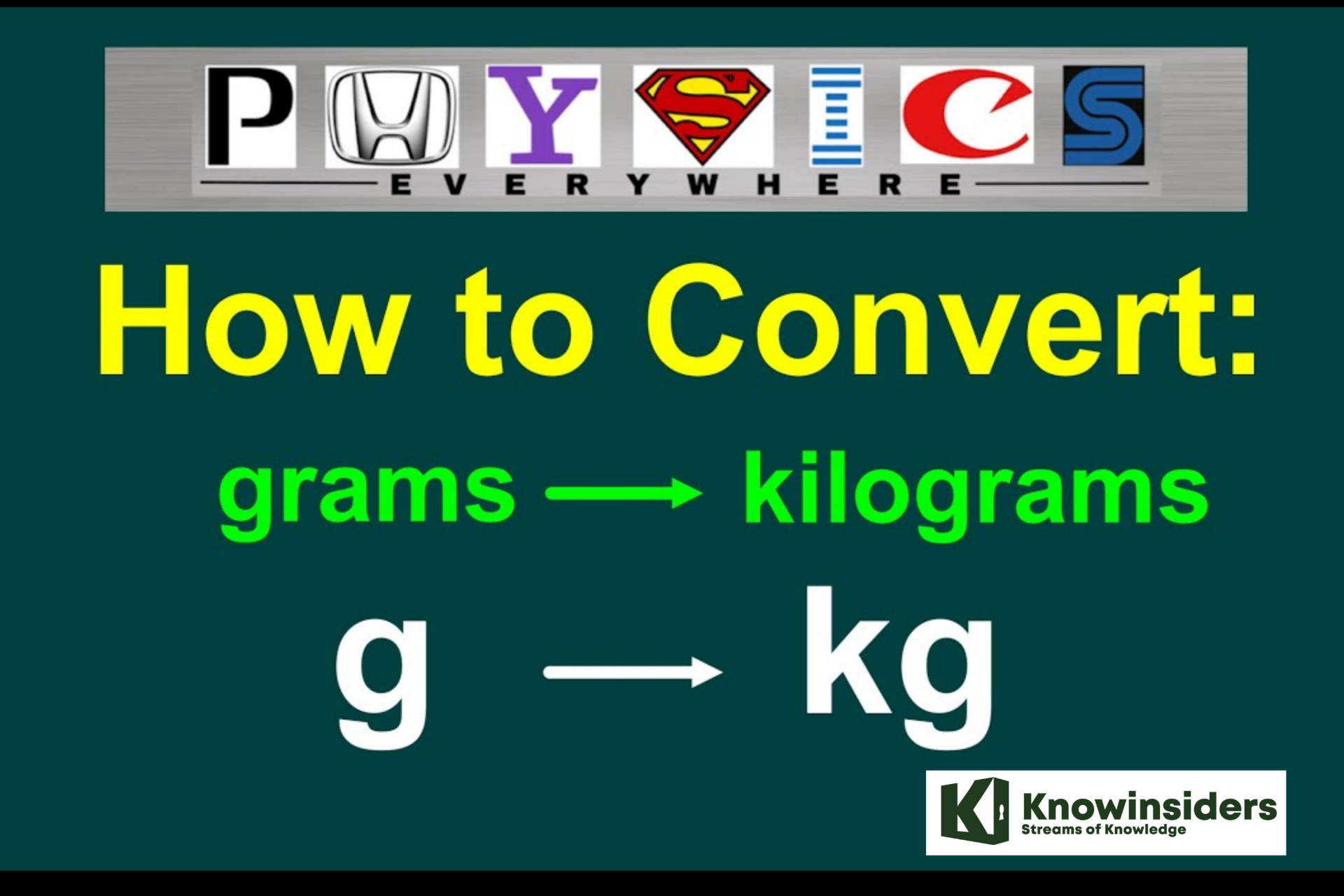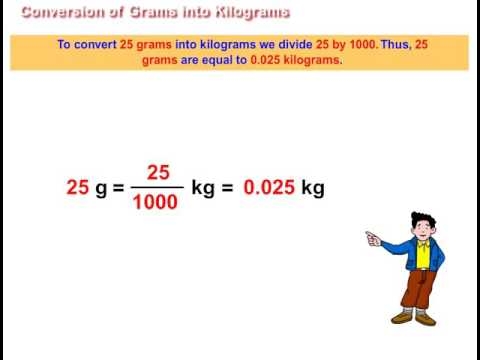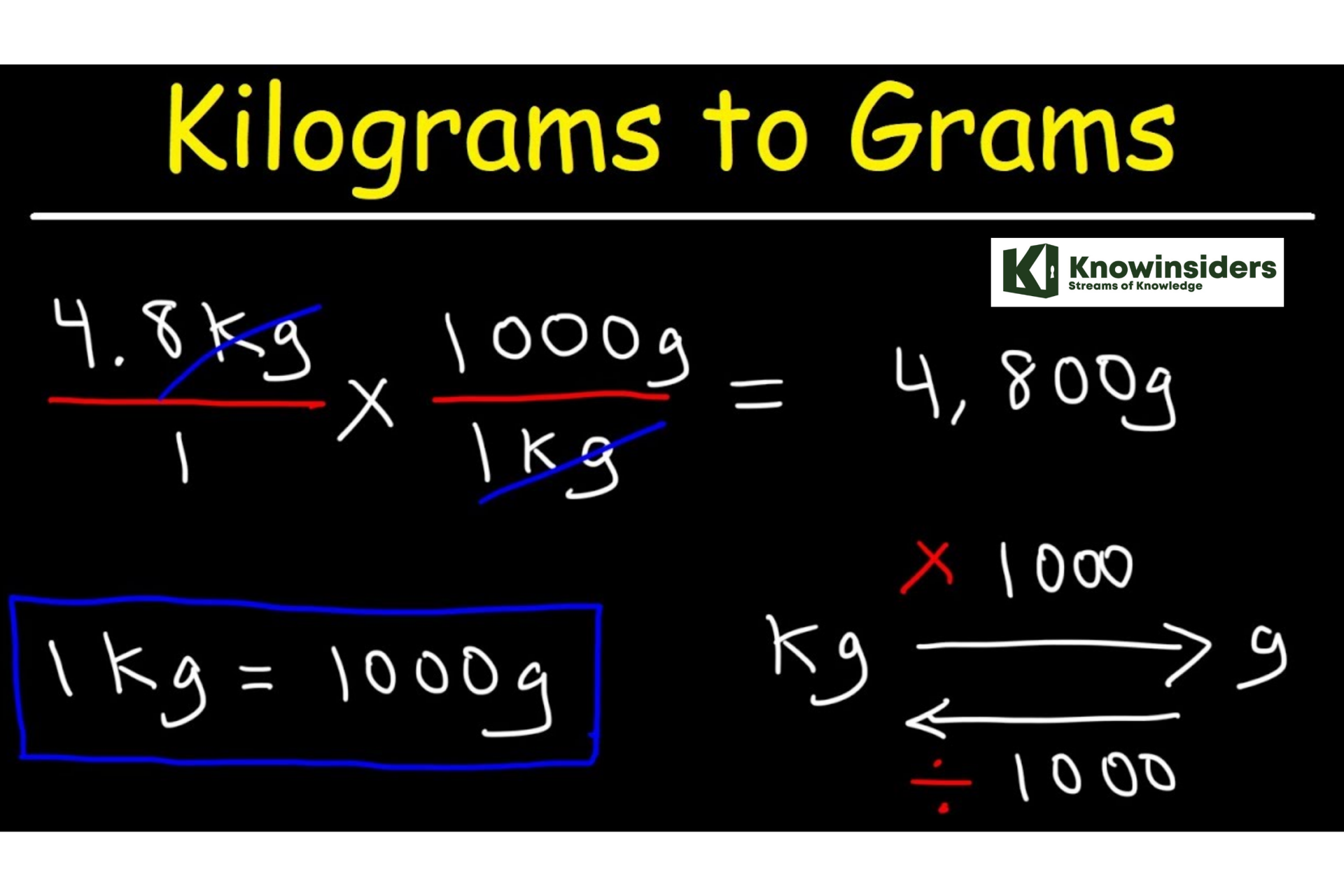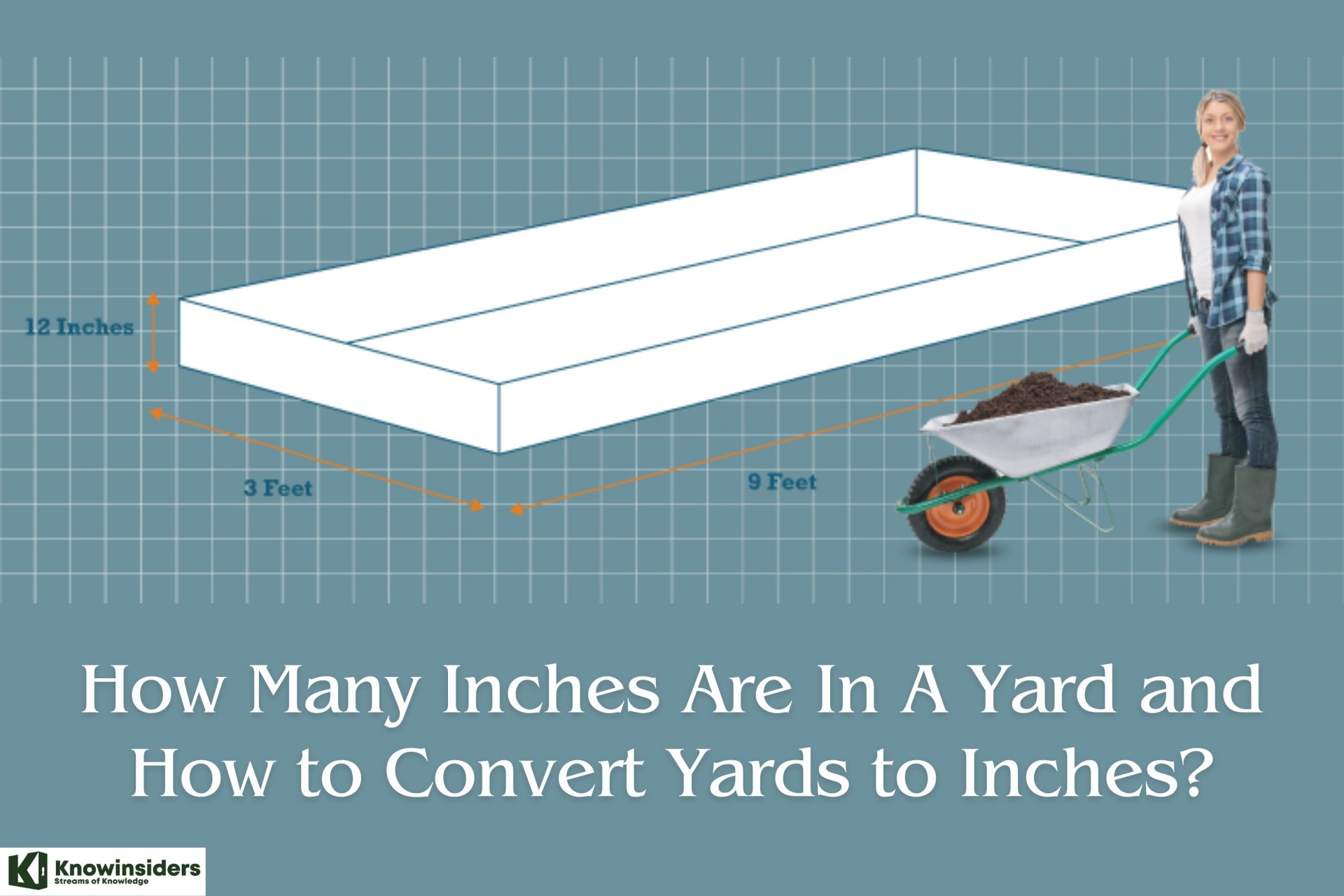How to Convert Grams to Kilograms
 |
| Illustrated picture. Photo: Mixi's |
In the metric system, grams are used to measure light weights and kilograms are used to measure heavier weights. There are 1,000 grams in one kilogram. This means that converting grams to kilograms is easy: just divide the number of grams by 1,000.
What are Kilograms
Description:
The kilogram is the base unit of mass in the International (SI) System of Units, and is accepted on a day-to-day basis as a unit of weight (the gravitational force acting on any given object).
The kilogram is almost exactly equal to the mass of one litre of water.
Definition:
The kg is defined as being equal to the mass of the International Prototype of the Kilogram (IPK), a block of platinum-iridium alloy manufactured in 1889 and stored at the International Bureau of Weights and Measures in Sèvres, France.
It is the only SI unit that is defined by a physical object rather than a fundamental physical property that can be reproduced in laboratories.
Origin:
For a short period the grave (also a metallic reference standard) was used to define one thousand grams, until it was replaced by the kilogram in 1799.
In 1795 metric measurement systems were introduced in France and the gram was defined as "the absolute weight of a volume of pure water equal to a cube of one hundredth of a metre, and at the temperature of the melting ice".
The kilogramme (derived from the Greek chilioi [thousand] and gramma [a small weight] was named as a more practical measure of mass for larger quantities in trade, and came to be used as the base unit of mass in all metric measurement systems.
The International (SI) System of Units published in 1960 used the kilogramme as the base unit of mass, and has been adopted by almost every country on earth (with a few notable the exceptions such as the United States).
What are Grams
Definition
A gram (symbol: g) is a unit of mass in the International System of Units (SI). The definition of the gram is based on the kilogram, where a gram is one thousandth of a kilogram, the SI base unit of mass. Since 2019, the definition of the kilogram is no longer based on the international prototype, and rather is based on Planck's constant, h, along with the new definitions of the second and the meter.
History/origin
Originally, a gram was defined as the absolute weight of pure water in a cubic centimeter at the temperature of melting ice (later 4 °C). The gram used to be a fundamental unit of mass as part of centimeter-gram-second systems of units up until the widespread adoption of SI, which uses kilograms as the base unit of mass. The gram was later redefined as one thousandth of a kilogram, the SI (meter-kilogram-second system of units) base unit of mass.
Current use
The gram is widely used in every life as well as scientific contexts. For example, the gram is typically used to measure non-liquid ingredients used for cooking or groceries. Standards on the nutrition labels of food products often require the relative contents to be stated per 100 grams of the product.
How to Convert Grams to Kilograms
Method 1 to Convert Grams to Kilograms: Converting by Shifting the Decimal Point
In this section, let's convert 37 grams to kilograms. We would begin the same way as in the section above, writing "37 grams" on our paper.
Step 1: Start with your number of grams. Believe it or not, you can convert between grams and kilograms without doing any math. This works because the metric system is a base 10 system of measurements. In other words, metric units are always a multiple of 10 apart from each other — there are 10 millimeters in a centimeter, 100 centimeters in a meter, 1,000 meters in a kilometer, and so on.
Step 2: Shift the decimal point three spaces to the left. Now, find the decimal point in your number of grams. If you're converting a whole number, this won't usually be written, but you can assume it its to the right of the ones place. Move the decimal point three spaces to the left. Each time you move past a number counts as one space. If you run out of numbers to move past, keep moving it, leaving blank spaces.[5]
* In our example, the decimal point in 37 grams is to the right of the 7 (i.e., 37 grams is the same as 37.0 grams). If we go one space at a time, moving the decimal point three spaces to the left looks like this:
37.
3.7
.37
._37 — note that we leave an empty space when we run out of numbers.
Step 3: Add zeroes in any empty spaces. You can't leave empty spaces in your answer, so fill in each one with a zero. You can also put a zero to the left of the decimal place if there aren't any numbers there, but this is optional — it just depends how you like to write your answers.
* In our example, we have one empty space between the decimal point and the 3, so we'll fill it in with a zero like this:
.037
* Adding the proper label (plus an extra zero to the left of the decimal point for presentation purposes), we get our final answer:
0.037 kilograms
Step 4: To get back to grams, shift the decimal place back. When you have kilograms, shifting the decimal place three spaces to the right will give you grams again. Fill in any empty spaces with zeroes as normal.
* In our example, we can shift the decimal place three spaces to the right like this:
0.037
00.37
003.7
0037. — the zeroes on the left don't matter any more, so we can rewrite this as simply 37 grams.
Method 2 to Convert Grams to Kilograms: Converting With Math
 |
| Photo: Youtube |
Step 1: Write the number of grams. Label it "grams" or "g." If you're using a calculator, just type the number in.
* In this section, we'll follow along with an example problem to make things easier. Let's say that we want to convert 20,000 grams to kilograms. To start, we would write "20,000 grams" on our paper.
Step 2: Divide by 1,000. A kilogram is one thousand grams. This means that to get kilograms from grams, you just need to divide the number of grams by 1,000.[2]
* In our example, we would get kilograms by dividing 20,000 grams by 1,000.
20,000/1,000 = 20
Step 3: Label your answer. Don't forget this step! Labeling your answer with the proper units is important. If you're doing this conversion for schoolwork, you can lose points if you don't label. If you're doing it for something else, people may assume the wrong units.[3]
* In our case, we would label our answer with the label "kilograms" like this:
20 kilograms.
Step 4: To get back to grams, multiply by 1,000. As discussed above, a kilogram is one thousand grams. This means that if you ever want to get back to grams from kilograms, all you need to do is multiply the number of kilograms by 1,000. Since multiplications is basically the "opposite" operation as division, this will "undo" the division and give you grams.[4]
* To get 20 kilograms back to grams, we just multiply by 1,000 (don't forget to label your answer again):
20 kilograms × 1,000 = 20,000 grams
 How to Convert Kilograms to Grams How to Convert Kilograms to Grams Below is the detailed instruction on converting kilograms to grams. Check out now! |
Convert Grams to Kilograms in Excel
Excel can help you in the conversion from grams to kilograms since Microsoft's spreadsheet program comes standard with a function that allows us to convert all kinds of units and, of course, we can convert from g to kilos using the following expression in an empty cell:
=CONVERT(C3; "g"; "kg")
Where C3 is the cell in which you have written the number of grams to be converted to kilograms. Of course, you can modify this cell and choose one that suits you better. You can even type directly the amount of grams you want to convert to kilograms as in this example:
=CONVERT(14; "g"; "kg")
The good thing about the first method is that it allows you to create your own converter from grams to kilograms in Excel, so you can use it whenever you want even if you don't have an Internet connection.
Grams to Kilograms conversion tableGrams (g) Kilograms (kg) 0 g 0 kg 1 g 0.001 kg 2 g 0.002 kg 3 g 0.003 kg 4 g 0.004 kg 5 g 0.005 kg 6 g 0.006 kg 7 g 0.007 kg 8 g 0.008 kg 9 g 0.009 kg 10 g 0.01 kg 20 g 0.02 kg 30 g 0.03 kg 40 g 0.04 kg 50 g 0.05 kg 60 g 0.06 kg 70 g 0.07 kg 80 g 0.08 kg 90 g 0.09 kg 100 g 0.1 kg 1000 g 1 kg |
In this video, you'll learn how to convert grams to kilograms in the easiest way:
For more interesting news of KnowInsiders, check out right below!
 How to Convert Excel To PDF: Simple Steps to Change How to Convert Excel To PDF: Simple Steps to Change Check out best ways to convert Excel to PDF in a few minutes. Quick and Easy to Change! |
 How To Convert Excel To Word and Word to Excel: Simple Ways to Change How To Convert Excel To Word and Word to Excel: Simple Ways to Change With Excel's spreadsheet power and Word's processing magic, they're a power duo for creating projects. Check out best ways to convert Excel spreadsheets to Word ... |
 10 Best Ways to Remove Your Tattoos 10 Best Ways to Remove Your Tattoos Check out 10 best ways to remove tattoos for those who don't want to keep your tattoos. |


























